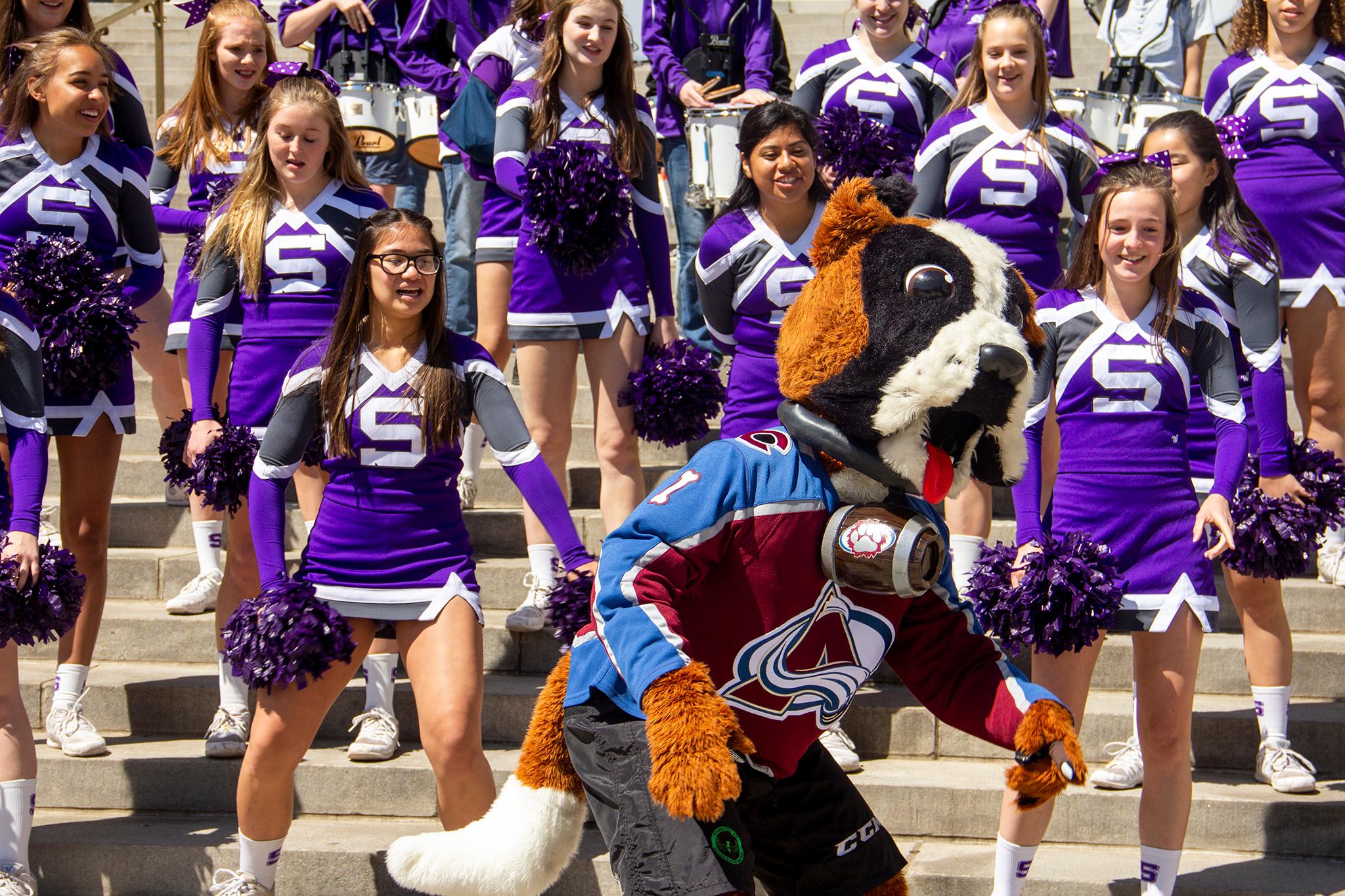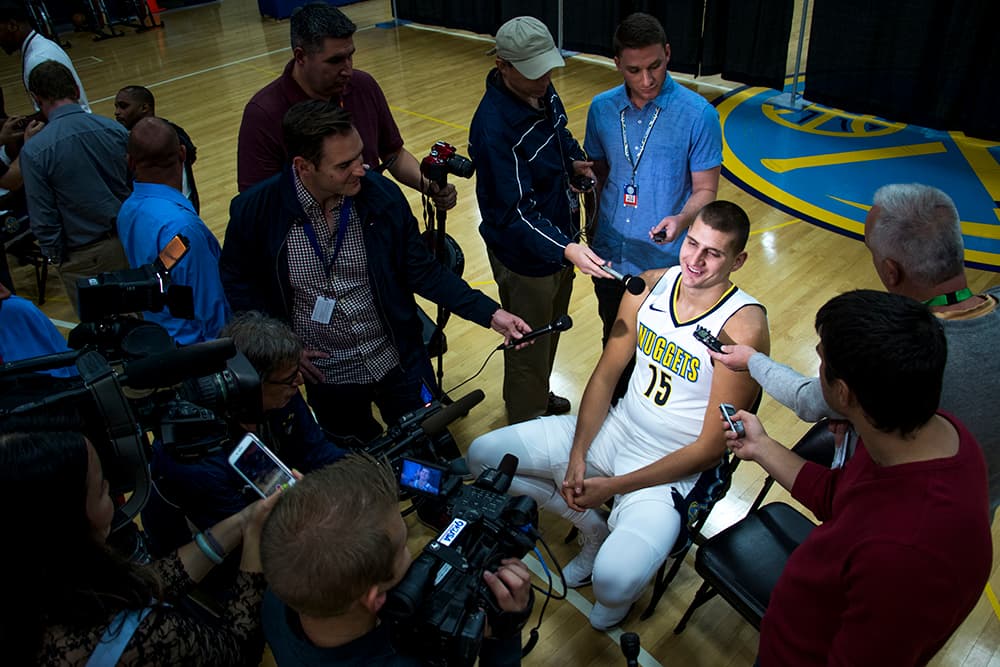For the first time in history, both the Avalanche and Nuggets simultaneously advanced to a second-round playoff, giving the Pepsi Center an especially packed schedule as the teams keep coming back to home court and home ice into May.
The arena hosted four consecutive games from Monday to Thursday this week and will host at least one more game next week for each team. The games are prompting a bump in businesses around downtown, where fans are flocking to see the two teams inch closer to a championship berth -- in person and on bar TVs.
No place is closer to the action than the Brooklyn's next to the Pepsi Center. Owner Dave Keefe said the restaurant has been completely packed for a couple of days.
"Oh my gosh, it's off the charts," he said Thursday before the Avs hosted the Sharks. "It's been fantastic. This is usually a slow time of the year for us. But it's not a slow time now. It's great."
University of Colorado Denver Assistant Economics Professor Andrew Friedson, confirmed what you can guess: the series will likely bring a jump in business for bars and restaurants closest to the arena. Hosting events means a big boost in foot traffic for downtown Denver, which is already pretty high.
"Some people will be people who are going to be downtown anyway," Friedson said. "Other people are coming just because the game is happening."

Matthew Payne, Denver Sports Commission executive director, is in charge of attracting sporting events as part of the city's tourism arm.
"It's unique," Payne said of the current series. "We've never really seen a playoff run like this in Denver."
A spokesperson from Kroenke Sports & Entertainment, which owns the Pepsi Center, did not return multiple requests for comment.
Keefe said things usually wind down for them around this time, as both teams don't typically make it very far into the playoffs.
It's usually part of a slump Keefe said improves only after summer concerts start. The last time he remembers seeing this much business in such a short span was when country star Garth Brooks played nine straight shows at the Pepsi Center in 2015.
"It's been great for Denver ... hopefully, they will keep winning," Keefe said. "It's great for our staff. It's a win-win."
Mayor Michael Hancock sported an Avs polo Thursday while announcing that the city will keep both teams until 2040. Depending on his schedule, he said, he's been watching the games at home, local bars and at the Pepsi Center.
"We can always talk about the economic impact, it is huge," Hancock said. "But it's not as big as the bringing together of the city and the region, quite frankly."
Friedson didn't have an estimate about how much more money the two series will bring to local businesses, but he suspects it's not as dramatic as other large events.
"The estimates that they put out for the Super Bowl or NCAA Final Four, those are going to be larger than the effects you'd see for something like the NBA playoffs or the NHL playoffs because they go back and forth," Friedson said.
Payne said high-profile sporting events in Denver typically draw 15 to 30 percent of people from outside the city and even outside the state. The city has seven professional sports teams.

The spending from the visitors makes for an economic boost, as folks spend money at local restaurants, pay for hotels and use ridesharing services or taxis.
Another added benefit: Payne said playoff series brings large broadcast audiences. That means more aerial and ground-level shots exposing new audiences to Denver.
There are potential drawbacks to hosting (and winning).
Traffic around the Pepsi Center will be bad, but Friedson points out Denverites should probably be used to this by now.
And winning up a major sporting event could lead to less than ideal situations. Think rowdy, boozed-up crowds setting things on fire in celebration and climbing stuff they're not supposed to climb. Denver fans have something of a history of responding this way after previous victories.
"If you are Denver business, you almost want them to go as far as possible then lose at the last second," Friedson said. "If I'm a Denver business owner, I want everyone piling up to watch the game but I don't want them rioting."
There's also a study published by researchers from CU Denver in 2016 that suggests prenatal exposure to the Super Bowl -- specifically the heightened emotion -- is associated with "a small, but precisely estimated, increase in the probability of low birth weight." (Yes, really).
But that's... more than we need to worry about or get into here.
"The point is, people behave badly when their team wins," Friedson said.













